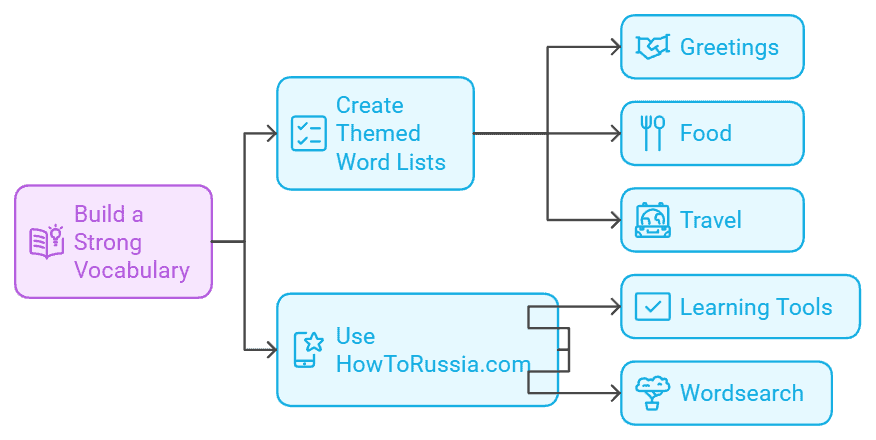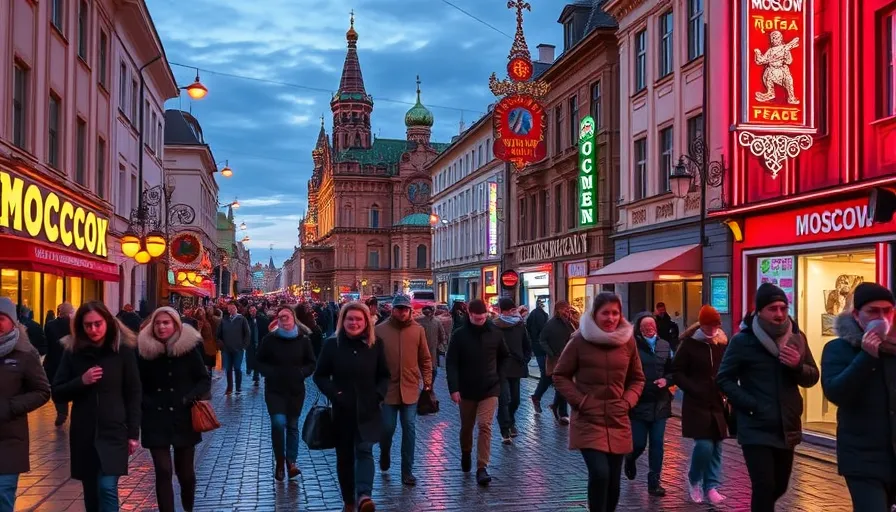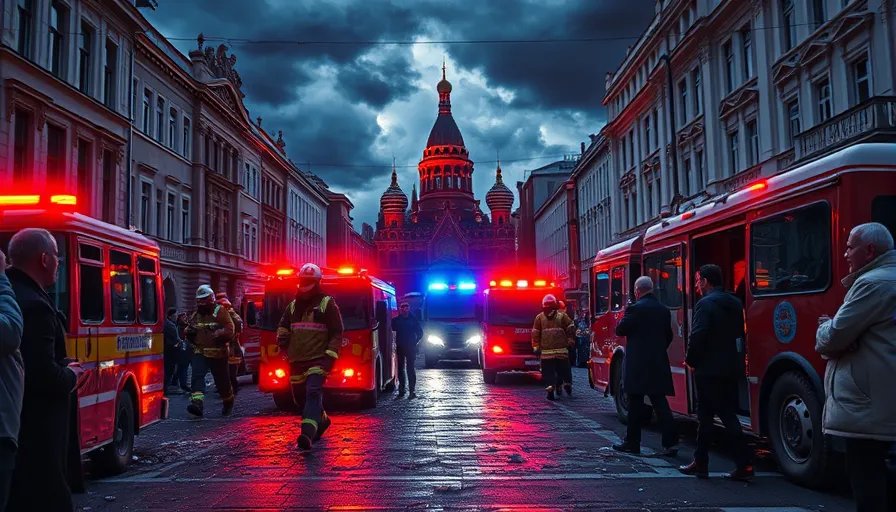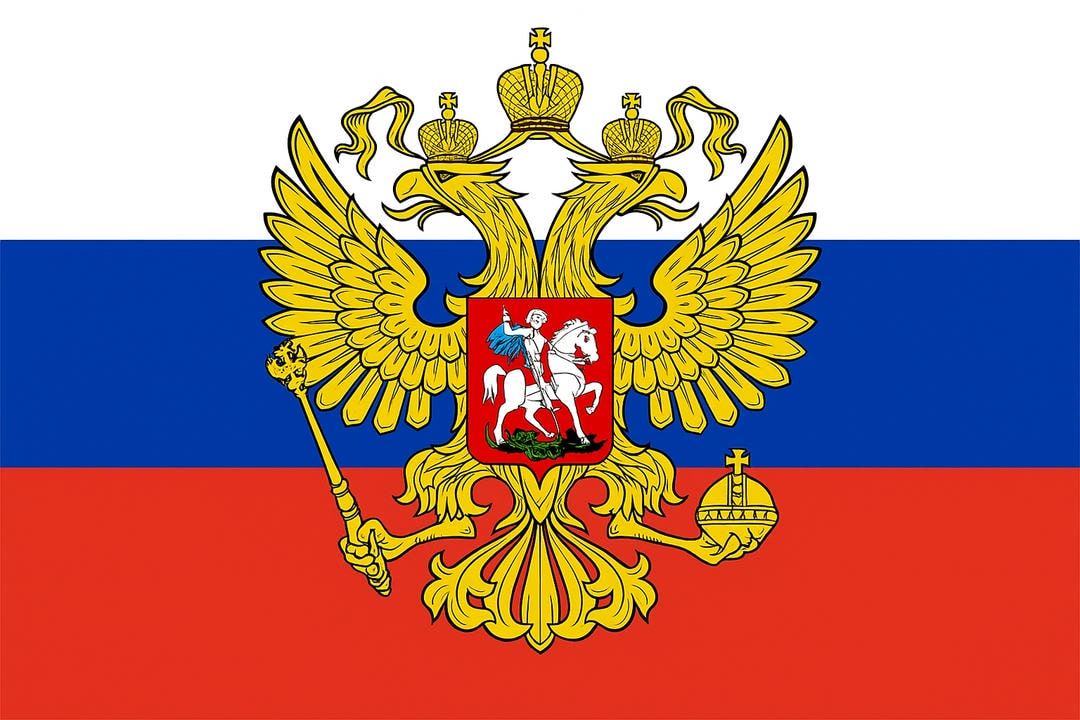As you prepare for your trip to Russia, you’re likely wondering how to communicate effectively with locals. You’ve heard that Russians appreciate visitors who make an effort to speak their language, but where do you start? Begin by mastering the Cyrillic script and basic phrases like ‘hello’ and ‘where is…?’ – essential tools for handling everyday situations with confidence. But that’s just the beginning; to truly access the full potential of your trip, you’ll want to learn more about the phrases and customs that will make your experience truly unforgettable.
Russian Alphabet Basics
As you set out on your Russian language journey, mastering the Cyrillic alphabet is your first essential step, with 33 letters waiting to decipher the secrets of this Slavic tongue.
The Cyrillic script, developed in the 9th century, has a rich history that spans over a thousand years. The script was created by two Byzantine brothers, Cyril and Methodius, who adapted the Greek alphabet to suit the Slavic languages.
Over time, the Cyrillic script has undergone significant changes, influenced by Russian typography evolution. In the 18th century, Peter the Great introduced reforms to modernize the alphabet, making it more phonetic and easier to read. The Soviet era saw further changes, with the introduction of new letterforms and typographical styles.
Today, the Cyrillic alphabet remains an integral part of Russian culture, used in everything from street signs to literature.
As you learn the Russian alphabet, you’ll notice that some letters are similar to their Latin counterparts, while others are unique to the Cyrillic script.
You’ll discover that some letters have multiple forms, depending on their position in a word. Mastering these nuances will help you read and write Russian with confidence.
With practice, you’ll gain access to the secrets of the Russian language, and the world of Russian culture will open up to you.

Essential Travel Phrases
Now that you’ve got a solid grasp of the Russian alphabet, it’s time to put your skills to the test with some practical phrases that’ll help you navigate everyday situations during your travels.
When you arrive at the airport, you’ll need to know some essential phrases to get through customs and immigration smoothly. Start with ‘Здравствуйте’ (Zdravstvuyte) – a formal way to say ‘hello’ to the officials.
If you need help, ask ‘Где…?’ (Gde…?) which means ‘Where is…?’ For instance, ‘Где багаж?’ (Gde bagazh?) means ‘Where is the luggage?’
Once you’ve cleared customs, you’ll head to your hotel. At the reception desk, greet the staff with ‘Здравствуйте’ (Zdravstvuyte) again.
Then, say ‘Я забронировал номер’ (Ya broniroval nomer) meaning ‘I have a reservation.’ If you need help with your luggage, ask ‘Можете помочь мне с багажом?’ (Mozhete pomoch’ mne s bagazhom?) which means ‘Can you help me with my luggage?’
Note: The response should be without pleasantries, such as ‘Here is…’ or ‘Here are…’.
Eating Out in Russian
When you’re eating out in Russia, you’ll want to know how to order food and what options are available.
From traditional dishes like borscht and beef stroganoff to modern cafes serving vegan and gluten-free meals, you’ll find a diverse range of food options to suit every taste.
Ordering Food
Mastering a Russian menu can be a challenging task, but with a few key phrases, you’ll be ordering like a local in no time.
As a traveler, avoiding common foodie faux pas is vital to sidestepping misunderstandings and misadventures. Understanding Russian culinary culture is vital to exploring menus and communicating with servers.
When ordering, start by greeting your server with ‘Здравствуйте’ (Zdravstvuyte) – a polite ‘hello.’
Then, ask for recommendations with ‘Что recommenduyete?’ (Chto rekomenduyete?).
If you’re unsure about a dish, ask ‘Что это?’ (Chto eto?) or ‘Как это делается?’ (Kak eto delayetsya?).
Don’t be afraid to ask for modifications, like ‘Без сахара, пожалуйста’ (Bez sakharu, pozhaluysta) for ‘no sugar, please.’
Food Options
You’ll find a wide variety of traditional Russian dishes to savor, from hearty meat stews and pirozhki to blini and caviar, each offering a flavorful taste of the country’s rich culinary heritage.
When eating out in Russia, you’ll have plenty of options to choose from. For a quick and affordable bite, try street food like shawarma or blini from a street vendor.
Local markets, such as Izmailovsky Market in Moscow or Kuznechny Market in St. Petersburg, offer a wide range of food stalls serving everything from traditional Russian dishes to international cuisine.
If you’re looking for a sit-down meal, cafes and restaurants serving Russian cuisine are plentiful. Be sure to try some of the local specialties like borscht, beef stroganoff, or pelmeni.
Don’t be afraid to ask your server for recommendations or help with the menu – they’ll be happy to assist you. With a little Russian phrasebook in hand, you’ll be well on your way to enjoying the country’s delicious culinary offerings.
Navigating Moscow’s Streets
As you step out of your hotel or hostel, Moscow’s vastness can be overwhelming, but with a few essential Russian phrases and a basic understanding of the city’s layout, you’ll be exploring its streets like a pro in no time.

To navigate Moscow’s streets, you’ll need to master the Moscow Metro. Buy a rechargeable Troika card, which can be refilled at metro stations or online. Learn to recognize the Cyrillic signs, as many stations don’t have English translations. Download the Moscow Metro app to help you plan your route.
When you’re above ground, deciphering street signs is vital. Many signs are only in Cyrillic, so it’s necessary to learn the Russian alphabet. Familiarize yourself with common signs like ‘улица’ (ulitsa), meaning ‘street,’ and ‘проспект’ (prospekt), meaning ‘avenue.’ If you’re lost, don’t hesitate to ask a local for help. Many Muscovites, especially younger generations, speak some English.
Shopping and Bargaining
Shopping in Moscow’s markets and malls is a thrilling adventure, requiring a mix of bargaining skills and cultural savvy.
As you navigate the vibrant stalls and boutiques, remember that market etiquette is key to a successful shopping experience. Start by greeting vendors with a friendly ‘Здравствуйте’ (Zdravstvuyte) or ‘Привет’ (Privyet), which means ‘hello.’ This breaks the ice and sets a positive tone for your interaction.
When it comes to haggling, Russians appreciate a good negotiation. Don’t be afraid to ask ‘Сколько стоит?’ (Skolko stoit?), or ‘how much does it cost?’ Be prepared to negotiate, and don’t take the initial price as gospel. A polite ‘Можно дешевле?’ (Mozhno deshevre?), or ‘can it be cheaper?’ can go a long way. If you’re unsure, ask ‘Почему так дорого?’ (Pochemu tak dorogo?), or ‘why is it so expensive?
Haggling strategies include making a lower offer, walking away, or suggesting a compromise. Remember to stay respectful and avoid being aggressive or pushy. Russians value respect and courtesy, so maintain a friendly demeanor and be open to finding a mutually beneficial price.
With practice and patience, you’ll master the art of bargaining in Moscow’s markets and malls.
Emergency Situations
In emergency situations, knowing key Russian phrases can be a lifesaver, and being properly equipped is vital to communicate your needs effectively. Whether you’re dealing with a medical emergency or need assistance from the authorities, speaking some Russian can make all the difference.

If you need medical assistance, it’s vital to know how to ask for help. You can say ‘Мне нужна медицинская помощь’ (Mne nuzhna meditsinskaya pomoshch’) which means ‘I need medical assistance.’ If you’re experiencing severe symptoms, you can say ‘Я чувствую себя плохо’ (Ya chuvstvuyu sebya plokho) meaning ‘I feel unwell.’ If you need to call an ambulance, say ‘Нужна скорая помощь’ (Nuzhna skoraya pomoshch’) or simply ‘Скорая’ (Skoraya) which means ‘Emergency services.”
In cases requiring Police intervention, knowing the right phrases can help you get assistance quickly. If you’re a victim of a crime, say ‘Я стал жертвой преступления’ (Ya stal zhertvoy prestupleniya) meaning ‘I’m a victim of a crime.’ If you need to report an incident, say ‘Я хочу заявить о преступлении’ (Ya hochu zayavit’ o prestuplenii) meaning ‘I want to report a crime.’ Remember to stay calm and speak clearly, and don’t hesitate to ask for help when you need it.
Useful Russian Phrases
When dealing with everyday situations in Russia, knowing a few key phrases can help you communicate effectively and make the most of your experience. You’ll be surprised at how far a simple ‘Здравствуйте’ (Zdravstvuyte) – ‘hello’ – can take you.
Want to ask for directions? Try ‘Где…?’ (Gde…?) – ‘where is…?’ followed by the place you’re looking for. Need to ask for help or clarification? ‘Пожалуйста’ (Pazhalusta) – ‘please’ – can go a long way.
In a restaurant, ‘МENU, пожалуйста’ (Menu, pazhalusta) will get you the menu, while ‘Я хочу…’ (Ya hochu…) – ‘I want…’ – can help you order. Don’t be afraid to ask ‘Сколько это стоит?’ (Skolko eto stoit?) – ‘how much does it cost?’ when shopping. And if you’re feeling adventurous, try ‘Я не понимаю’ (Ya ne ponimayu) – ‘I don’t understand’ – to show you’re willing to learn.
Enrolling in Russian language courses or participating in cultural immersion experiences can help you build a strong foundation in the language. But even with just a few basic phrases, you’ll be able to navigate everyday situations with confidence. So, take the first step and start practicing – you never know when you’ll need to ask ‘Как дела?’ (Kak dyela?) – ‘how are you?’ to a local.





